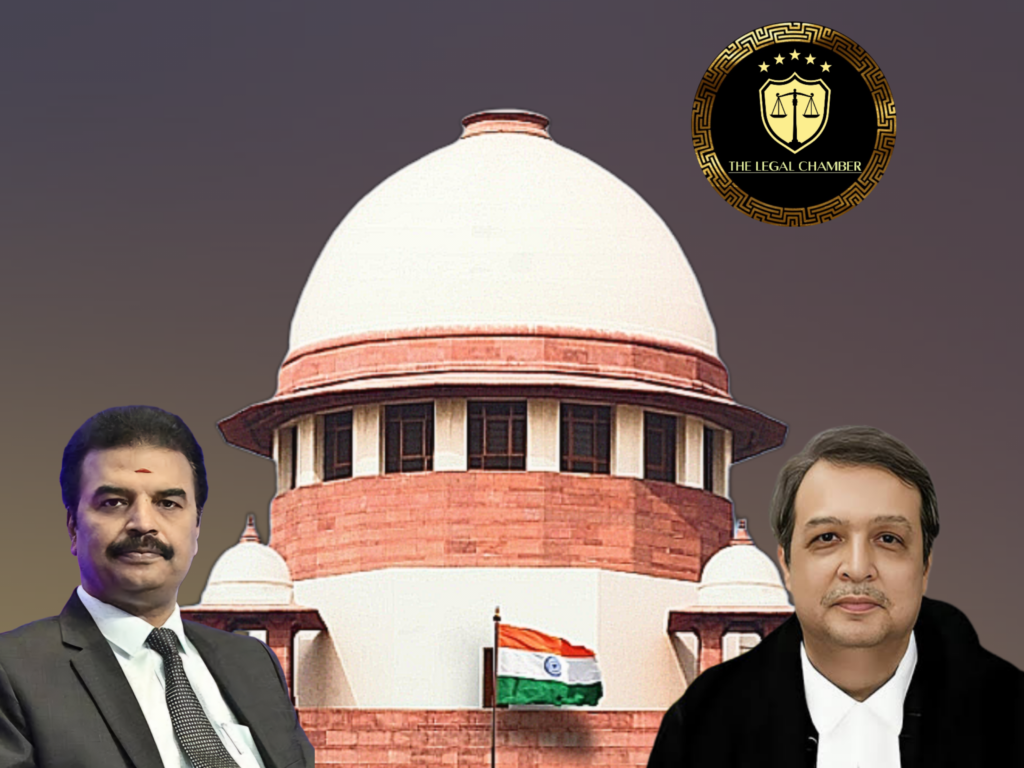
The Supreme Court held that licensed stamp vendors qualify as “public servants” under Section 2(c)(i) of the Prevention of Corruption Act, 1988, as they perform a public duty and are remunerated by the government through discounts. However, the appellant’s conviction was overturned due to insufficient proof of demand and acceptance of illegal gratification. The Court emphasized a purposive interpretation of anti-corruption laws to curb corruption effectively.
Facts Of The Case:
The case arose from an incident on 9 December 2003, when a complainant visited the Sub-Registrar’s Office in Janakpuri, Delhi, to purchase a stamp paper worth ₹10. The appellant, a licensed stamp vendor, allegedly demanded ₹12 instead. The complainant filed a complaint with the Anti-Corruption Branch (ACB), leading to a trap operation. The ACB provided the complainant with two currency notes (₹10 and ₹2) smeared with phenolphthalein powder. When the complainant returned, the vendor again demanded ₹12, accepted the tainted money, and was subsequently caught. The raiding team recovered the notes, and a handwash test confirmed the presence of phenolphthalein.
The Trial Court convicted the appellant under Sections 7 (demand of bribe) and 13(1)(d) (criminal misconduct by a public servant) of the Prevention of Corruption Act, 1988, sentencing him to rigorous imprisonment. The Delhi High Court upheld the conviction, ruling that stamp vendors are public servants as they perform a public duty and receive remuneration via government-approved discounts.
On appeal, the Supreme Court agreed that stamp vendors qualify as public servants under the Prevention of Corruption Act but acquitted the appellant due to inconsistencies in witness testimonies and lack of conclusive proof of demand for illegal gratification. The Court emphasized that mere recovery of tainted money is insufficient without clear evidence of a corrupt demand.
Procedural History:
The case began with the Trial Court convicting the appellant under Sections 7 and 13(1)(d) read with Section 13(2) of the Prevention of Corruption Act, 1988, sentencing him to rigorous imprisonment. The appellant challenged this before the Delhi High Court, which upheld the conviction, affirming that stamp vendors are public servants under the Act. Dissatisfied, the appellant appealed to the Supreme Court, which, while agreeing that stamp vendors qualify as public servants, overturned the conviction due to insufficient evidence proving demand and acceptance of illegal gratification. The Supreme Court emphasized that mere recovery of tainted money is not enough for conviction without clear proof of a corrupt demand.
Court Observation:
The Supreme Court made several key observations in its judgment. Firstly, it emphasized that the definition of “public servant” under Section 2(c) of the Prevention of Corruption Act must be interpreted purposively to advance the legislation’s objective of combating corruption. The Court held that stamp vendors qualify as public servants since they perform a public duty (ensuring access to stamp papers for legal transactions) and are remunerated by the government through commission in the form of discounts, satisfying Section 2(c)(i).
The Court clarified that the relationship between stamp vendors and the government need not be strictly principal-agent for anti-corruption provisions to apply, as the focus is on public duty performance. It distinguished the interpretation of “commission” under the Prevention of Corruption Act from that under income tax laws, noting the broader legislative intent behind anti-corruption statutes.
However, regarding the appellant’s conviction, the Court found material inconsistencies in witness testimonies, particularly concerning proof of demand for illegal gratification. It reiterated that mere recovery of tainted money is insufficient without clear evidence of corrupt demand, following precedents like P. Satyanarayana Murthy and Neeraj Dutta. The Court thus acquitted the appellant while upholding the broader legal principle about stamp vendors’ status as public servants.
Final Decision & Judgement:
The Supreme Court allowed the appeal and set aside the appellant’s conviction, holding that while licensed stamp vendors qualify as public servants under the Prevention of Corruption Act, the prosecution failed to prove the essential elements of demand and acceptance of illegal gratification beyond reasonable doubt. The Court emphasized that mere recovery of tainted money, without conclusive evidence of a corrupt demand, cannot sustain a conviction under Sections 7 and 13(1)(d) of the Act. Consequently, the judgments of both the Trial Court and Delhi High Court were overturned, and the appellant was acquitted of all charges. The Court clarified that its decision on the legal status of stamp vendors as public servants would apply prospectively, ensuring future cases under anti-corruption laws could rely on this precedent while maintaining fairness in the instant case.
Case Details:
Case Title: Aman Bhatia vs. State (GNCT of Delhi) Citation: (2025) INSC 618 Criminal Appeal No: Criminal Appeal No. 2613 of 2014 Date of Judgment: 2nd May 2025 Bench: Justice J.B. Pardiwala & Justice R. Mahadevan
Download The Judgement Here